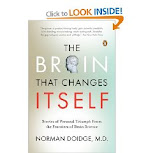
I have been reading A Master Class in Brand Planning (book newly published by the APG UK and also available from APG Ro at a good discount if you're a member) and it makes me understand that we are trying to reinvent the wheel in here.
The more I read the more I realize that they were going through what we are back in 1985, with planners being an uncertain professional group, with no clear job profile. So what offends me is that in Romania we have to go through the same motions although there is plenty of literature to explain to everyone how to use a planner and what planners are good for. But since we have built an industry based on personal creative merit and little to no professional skill I expect we do have to go through the entire cycle before we reach the age of enlightenment.
Second, I find it a relief to realize that planners did stem from marketing and research backgrounds as they were initially those preparing the marketing strategy for their clients. I have always wondered why NPD (new product development) was considered a part of a planner's trade and now it makes a lot of sense. If they were doing marketing they would have been expected to do that as well. This resolves an internal conflict I had about planners as simple lateral thinkers or all round interesting people: you should be that as well, it probably makes the difference between good planners and great planners. But bottom line, you should be able to to marketing and research also. Even if it is creative research :-)
One thing that planners back then had to face was the fact that, in time, companies developed their own marketing departments. This is sort of a fixture nowadays when marketing is the client's responsibility (or so it seems) and planners trying to be a part of that is deemed intrusive. But in fact, it should be a common part of what we do everyday.
In addition, we should focus more on developing skills that indeed support and develop the industry we are in. The thinking behind this is that if you come into planning believing that you are a good and interesting thinker, you will spend most of your time trying to acquire some marketing skills to basically keep up with the marketing manager. If you come in being a researcher you will try to understand how creatives essentialize messages to be able to make that leap from conclusions of a research to a campaign message. If you come in knowing marketing you will probably want to leave really soon because nothing advertising people do seems relevant enough. So you'd better come in with some marketing basis, a good heap of research analysis and top all that with creative and lateral thinking. And that will make you a decent planner. To get to great, well, at this point you have to do better than match a marketing manager and a creative director: you have to come up with something that will make your industry more effective, and virtually draw you out of the middle ages of planning.














No comments:
Post a Comment